Abstract
Changes associated with two serial, nationwide, mass-media-based campaigns to promote physical activity conducted by the National Heart Foundation of Australia in 1990 and 1991 were examined. Surveys conducted before and after each campaign found statistically significant differences in message awareness (46% vs 71% in 1990; 63% vs 74% in 1991). In 1990, there were significant increases in walking, particularly among older people, and in intentions to exercise. No such changes were apparent in 1991. In the case of these two campaigns, conducted 1 year apart, the second may have been redundant.
Full text
PDF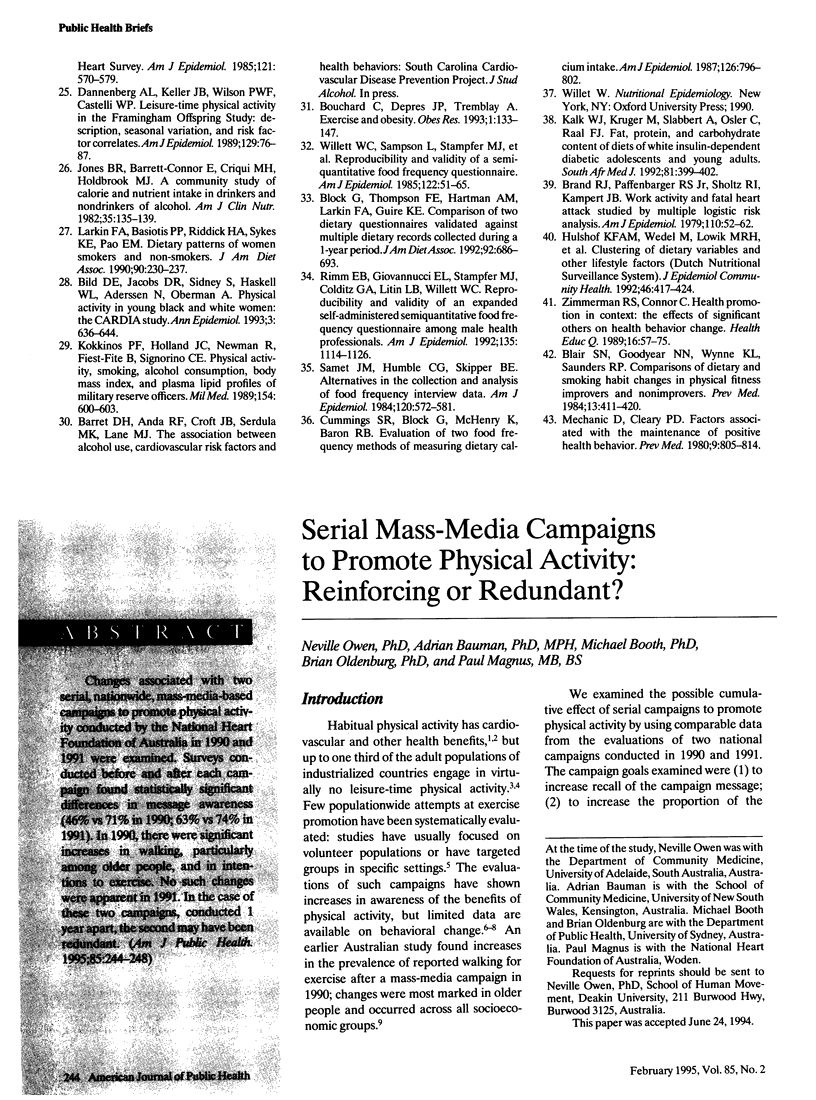
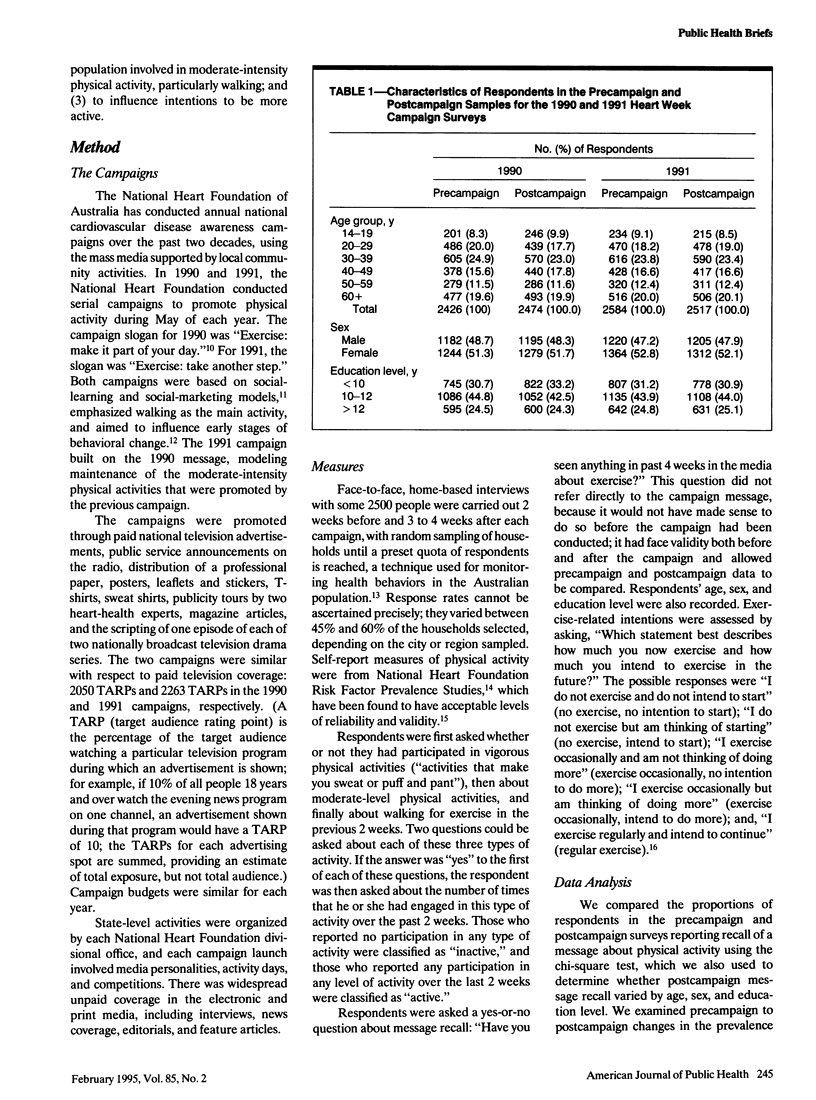
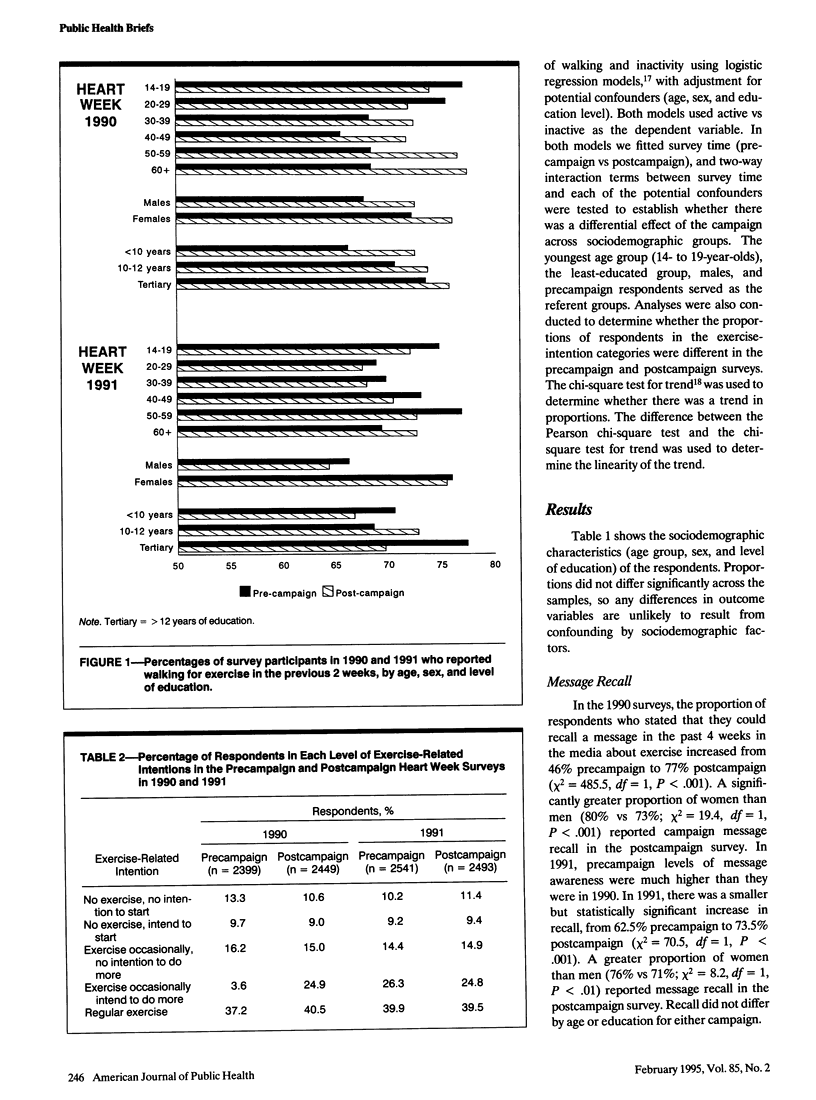
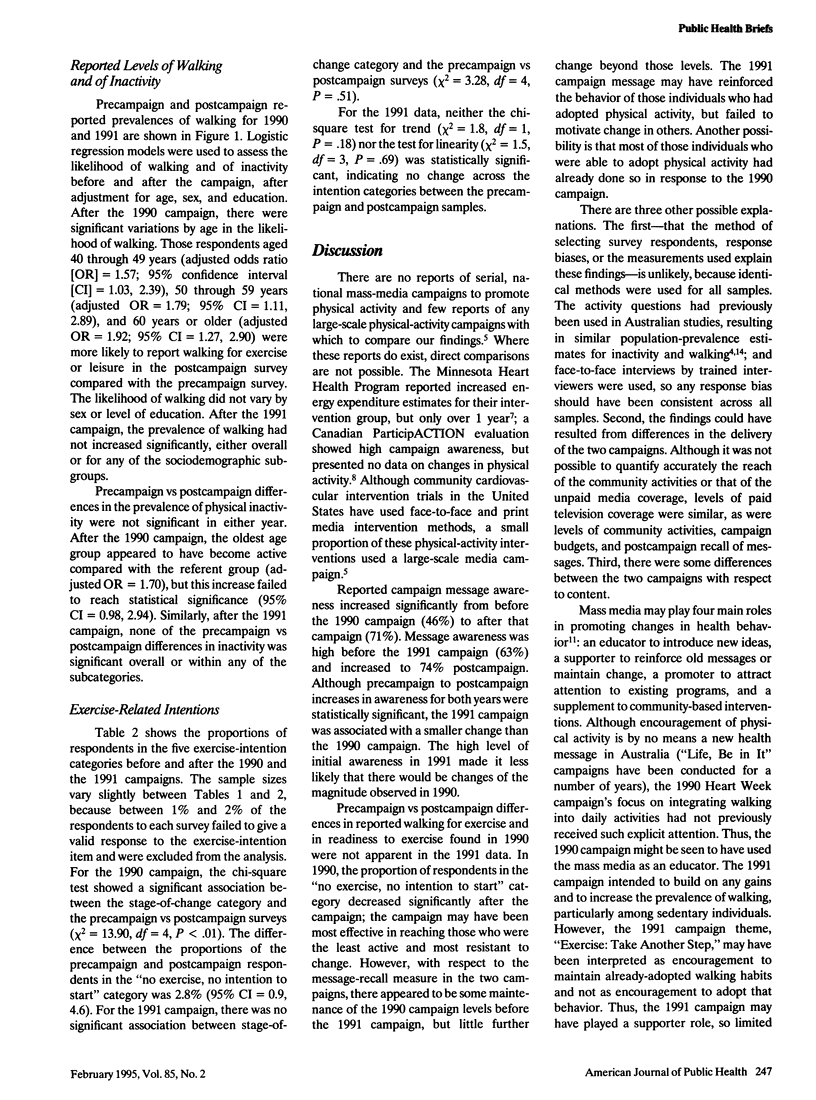
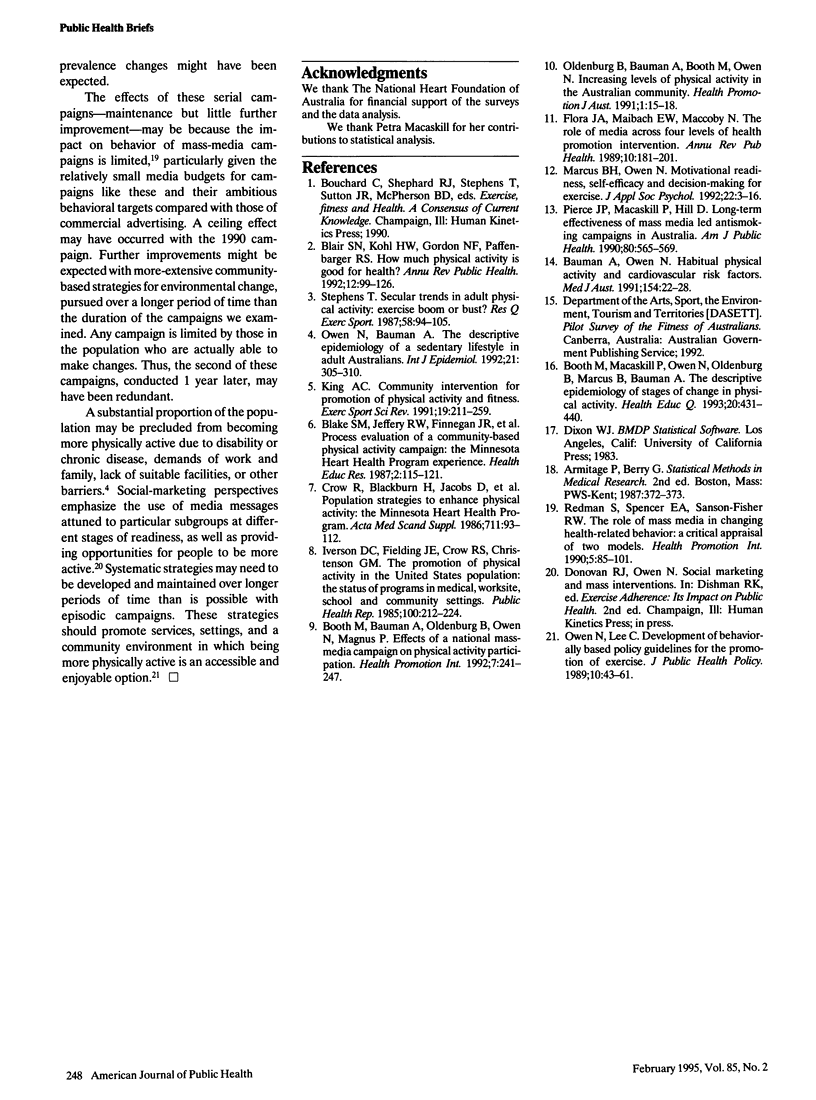
Selected References
These references are in PubMed. This may not be the complete list of references from this article.
- Bauman A., Owen N. Habitual physical activity and cardiovascular risk factors. Med J Aust. 1991 Jan 7;154(1):22–28. doi: 10.5694/j.1326-5377.1991.tb112841.x. [DOI] [PubMed] [Google Scholar]
- Blair S. N., Kohl H. W., Gordon N. F., Paffenbarger R. S., Jr How much physical activity is good for health? Annu Rev Public Health. 1992;13:99–126. doi: 10.1146/annurev.pu.13.050192.000531. [DOI] [PubMed] [Google Scholar]
- Booth M. L., Macaskill P., Owen N., Oldenburg B., Marcus B. H., Bauman A. Population prevalence and correlates of stages of change in physical activity. Health Educ Q. 1993 Fall;20(3):431–440. doi: 10.1177/109019819302000312. [DOI] [PubMed] [Google Scholar]
- Crow R., Blackburn H., Jacobs D., Hannan P., Pirie P., Mittelmark M., Murray D., Luepker R. Population strategies to enhance physical activity: the Minnesota Heart Health Program. Acta Med Scand Suppl. 1986;711:93–112. doi: 10.1111/j.0954-6820.1986.tb08937.x. [DOI] [PubMed] [Google Scholar]
- Flora J. A., Maibach E. W., Maccoby N. The role of media across four levels of health promotion intervention. Annu Rev Public Health. 1989;10:181–201. doi: 10.1146/annurev.pu.10.050189.001145. [DOI] [PubMed] [Google Scholar]
- Iverson D. C., Fielding J. E., Crow R. S., Christenson G. M. The promotion of physical activity in the United States population: the status of programs in medical, worksite, community, and school settings. Public Health Rep. 1985 Mar-Apr;100(2):212–224. [PMC free article] [PubMed] [Google Scholar]
- King A. C. Community intervention for promotion of physical activity and fitness. Exerc Sport Sci Rev. 1991;19:211–259. [PubMed] [Google Scholar]
- Owen N., Bauman A. The descriptive epidemiology of a sedentary lifestyle in adult Australians. Int J Epidemiol. 1992 Apr;21(2):305–310. doi: 10.1093/ije/21.2.305. [DOI] [PubMed] [Google Scholar]
- Owen N., Lee C. Development of behaviorally-based policy guidelines for the promotion of exercise. J Public Health Policy. 1989 Spring;10(1):43–61. [PubMed] [Google Scholar]
- Pierce J. P., Macaskill P., Hill D. Long-term effectiveness of mass media led antismoking campaigns in Australia. Am J Public Health. 1990 May;80(5):565–569. doi: 10.2105/ajph.80.5.565. [DOI] [PMC free article] [PubMed] [Google Scholar]


